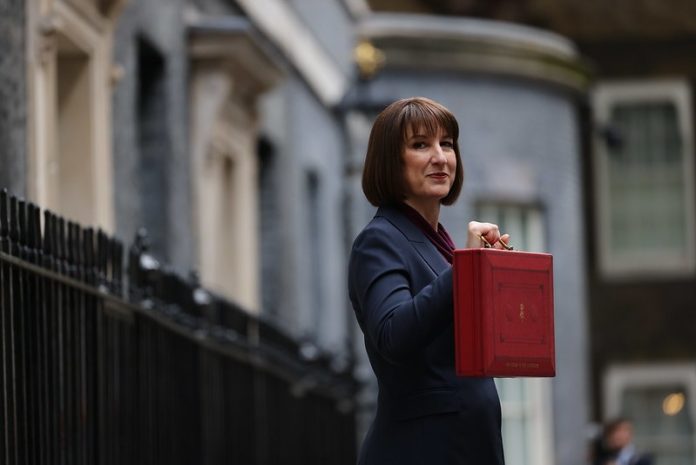Rachel Reeves has said she might deliver a “tricky” Autumn Budget on 26 November amid continued rumours that she will announce new tax increases.
The chancellor is under pressure to drive up economic growth while meeting her own fiscal rules.
The National Institute of Economic and Social Research predicts she will miss the ‘stability rule’ for 2029-30 by £41.2 billion and experts say she will need to increase taxes in the Autumn Budget.
Speaking at the government’s Regional Investment Summit in Birmingham, the chancellor said: “I changed the fiscal rules in the UK last year to separate out how we treat day to day spending and capital spending.
“So even when you know there are tricky Budgets, and you know we might have one of those coming up, I can’t just cut capital to make the numbers add up.
“That is so important because it means we’re not going to make the next Budget even harder by not investing in the things that are actually going to deliver a return to our country.”
Questioned further on what businesses can expect in the speech, she said:
“The Budget will continue to focus on growth. I recognise that businesses have absorbed tax increases and other challenges over the last year, the geopolitical uncertainty, the higher barriers to trade, and I want to make sure that this Budget is pro-growth, whilst also addressing the deep challenges that we face in ensuring we’ve got stability in our economy.
“Fiscal stability and economic stability isn’t somehow a separate objective to growth, and we all know that because we saw what happened a few years ago when a previous government made unfunded tax cuts. If we came out of the Budget with plans that investors in government bonds and financial markets recognise didn’t add up, we will see what happened to Liz Truss and Kwasi Kwarteng happen again.
“We’ll see turbulence in financial markets, which is a disincentive to invest. So I will ensure that the sums add up, that we have that buffer against future shocks, but as much as possible, through both our tax and spending policy, but also, crucially, through all those other levers of economic policy
“Economic policy isn’t just what you do on Budget Day, it’s what you do the other 364, days a year, when you are deregulating, when you are unblocking the planning system, when you are backing businesses, where you are unlocking capital in our capital markets, all of those things are also important for growth.
“I hope that businesses see despite some of the difficult decisions that we’ve had to make this last year to stabilise the public finances, that we are doing everything we can to back Britain, to go out and back for Britain, and to bring investment into our country, to turn around the performance that has not been good enough the last 15 years.”

